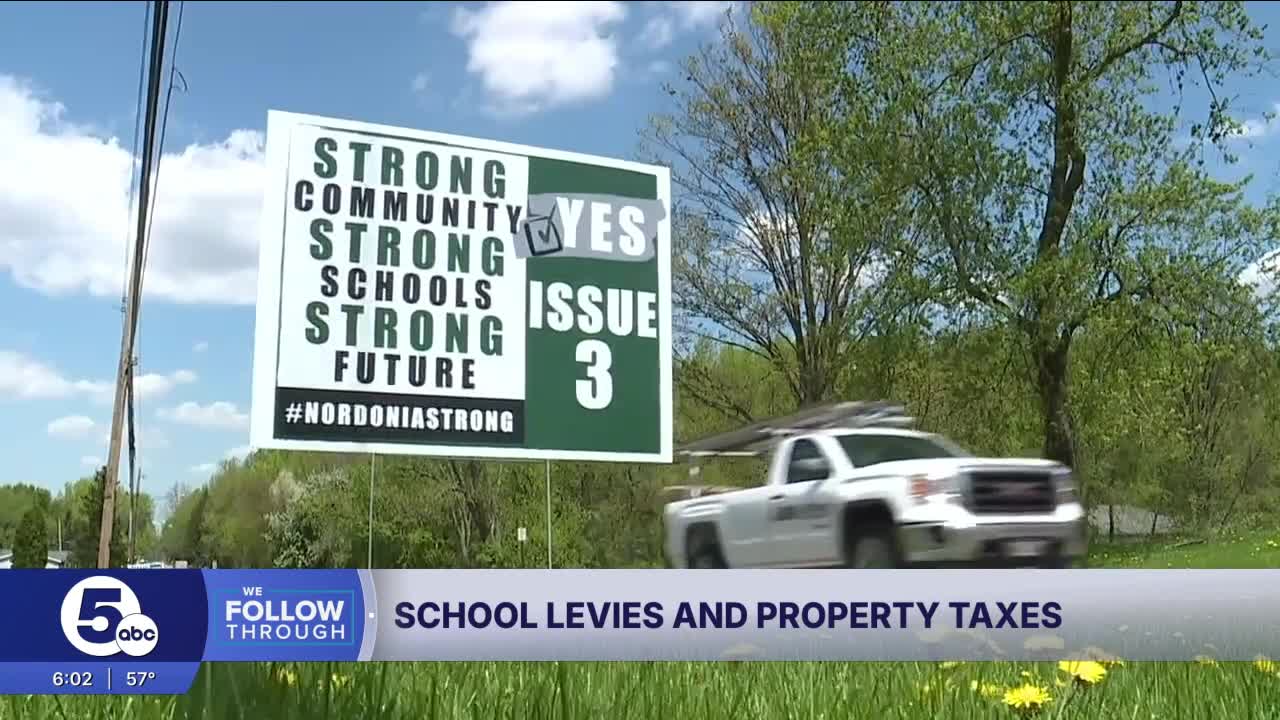COLUMBUS, Ohio — Some public schools are fighting for Ohioans' votes this November, urging community members to pass their levies as education faces funding challenges — and warning what could happen if they fail.
"Local school levies have always been part of the equation," Ohio Education Association President Jeff Wensing said. "Unfortunately, it seems like there's a great possibility that they're gonna become a bigger part of the equation.
This November election, 108 school districts across the state have levies on the ballot
Wensing, a former Parma math teacher, cited data from the nonpartisan research group Policy Matters Ohio, which showed the state slashed the expected public education spending by nearly $3 billion over the next two years.
"In order to deliver on that promise of a great public education, we need to provide the resources that our students need, as well as our educators," he said.
Because of rules passed by lawmakers, a levy "seems like the only option," he added.
For months, we have covered the funding woes that schools have — and why many GOP legislators say they aren't legitimate.
Watch:
RELATED: Ohio schools sound alarm with the governor over what they're calling a destructive budget
But when we asked state lawmakers like House Finance Chair Brian Stewart (R-Ashville) about schools consistently going back to the ballot, he said he didn't "think that's true."
"I trust our very able school boards and administrators can find ways to do their job, living within their means," Stewart said.
But schools are facing another challenge.
Legislators changed state law starting after the November election, so districts will no longer be able to put emergency levies on the ballot or request an increase to a current levy. That legislation eliminated levy replacements on property taxes for all political subdivisions.
Recent bills or provisions restricting school funding will provide much-needed property tax relief for homeowners, House Speaker Matt Huffman (R-Lima) said.
"It's an extraordinary tax savings," Huffman said.
Last week, lawmakers passed H.B. 186 and 335, which limit how much money school districts can get from rising home values — tying tax increases to inflation.
RELATED: Ohio group seeking to abolish property taxes says it has collected well over 100,000 signatures
"When it comes to schools, they've been saying that this will put them in a constant levy cycle. What do you have to say to them — especially given the fact that they now have less options after this election to put a levy on the ballot?" I asked the speaker.
"It's sort of a different answer... We have over 600 school districts," Huffman responded.
School districts will differ depending on how they manage their finances, he said.
"Right now, you have plenty of money. Why would you have to go into a constant cycle?" he said, referencing schools that keep a rainy day fund.
Many districts don’t need the cash, while others are better at maintaining their costs.
But for districts like Parma, ones that haven’t been able to pass a new levy in more than a decade, Wensing said that isn’t true.
"You can't create property tax relief on the backs of public schools," Wensing said. "Because the General Assembly has done what they've done, people have to make hard choices."
That is why the fall election is essential for districts with proposals on the ballot.
"What happens if these levies fail this November?" I asked Wensing.
"If the levies fail this November, public schools, public school students, communities will suffer," he responded. "When you don't have the money to provide the services that you used to, things get cut and educators' jobs get cut. Class sizes go up, opportunities for students decrease, and that's not right. Our General Assembly needs to do better."
Follow WEWS statehouse reporter Morgan Trau on Twitter and Facebook.





